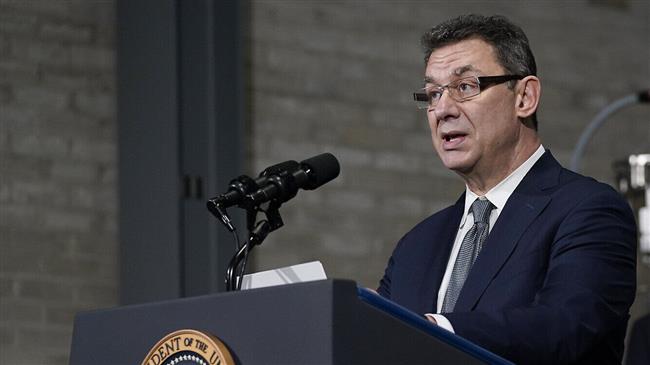Netanyahu's future unclear as exit polls forecast stalemate in Israeli elections
Israel may continue to be stuck in political deadlock following its fourth parliamentary elections in two years as initial exit polls show there is no clear winner, leaving Prime Minister Benjamin Netanyahu's fate uncertain.
Initial exit polls broadcast by three main Israeli television channels on Wednesday indicated that Netanyahu's right-wing Likud party had the lead but was likely to fail to garner enough seats to secure a parliamentary majority needed to form a new cabinet.
That will raise the possibility of continued political gridlock and an unprecedented fifth consecutive election later this year.
On Wednesday, Netanyahu claimed a "huge victory" over the opposition Yesh Atid party candidate, Yair Lapid, who has emerged as his main challenger thanks to deep divisions in the Blue and White opposition party headed by Benny Gantz.
Netanyahu described Tuesday's projected results as a "huge win for the right" and his Likud party.
"I will reach out to all elected officials who share our principles. I will not exclude anyone," he told supporters enthusiastically.
But projections based on exit polls did not bear that victory announcement out.
Meanwhile, Lapid has also claimed that his party has a path to a majority cabinet.
"At the moment, Netanyahu doesn't have 61 seats," he said addressing supporters in Tel Aviv.
Lapid said he had "started speaking to party leaders and we'll wait for the results but we'll do everything to create a sane government in Israel."
Netanyahu's only path to a viable right-wing coalition appears to rest on a deal with the head of far-right Yamina party, Naftali Bennett.
Bennett's Yamina party is forecast to win seven seats in the 120-member Knesset.
Even if Bennett's projected seven seats technically enable Netanyahu to cobble together a cabinet, there is no guarantee the two will unite.
If Netanyahu can't reach a deal with Bennett and his opponents cannot unite, a fifth election is possible.
Yohanan Plesner, an Israeli anaylst, said a fifth national election remained a real option.
People in the Israeli-occupied territories headed to the polls for the fourth time in less than two years on Tuesday. The final results are expected by March 31.
Opponents have accused Netanyahu of seeking new elections out of self-interest and in the hopes of securing enough support in parliament for possible legislation to quash criminal cases against him.
Netanyahu, 71, is accused of accepting improper gifts and seeking to trade favors with media moguls in exchange for positive coverage. He has denied wrongdoing.
To shift attention away from his graft charges, the premier has been trying in recent months to publicize a vaccination campaign against COVID-19 wishing to secure more votes.
Meanwhile, Netanyahu has so far failed to secure enough pledges of allegiance from smaller parties, which would be essential to form a majority cabinet.
The premier and his former election rival Gantz, who is now the Israeli minister of military affairs, established a cabinet in May last year in the wake of three inconclusive elections.
The fractured ruling coalition, however, collapsed last December after it failed to pass a budget and the Israeli parliament was dissolved.
Gantz's Blue and White party is forecast to garner barely enough votes to get into parliament, after he angered many of his supporters by reneging on a promise not to serve under a "crime minister," a popular reference to Netanyahu.
Spain acts against Israel's illegal settlements, orders platforms to remove listings
UAE urges ‘restraint’ after Saudi airstrikes on Yemen’s Mukalla port
Iran, Russia presidents review strategic relations, joint agreements
VIDEO | Legacy beyond martyrdom
Iran’s president vows ‘severe’ response to any aggression after Trump’s threat
Venezuelans will defend their independence in face of unlawful US moves: Iran FM
VIDEO | Millions of Afghans facing severe hunger amid aid cuts
Iran labels Royal Canadian Navy a ‘terrorist organization’ over IRGC designation














 This makes it easy to access the Press TV website
This makes it easy to access the Press TV website